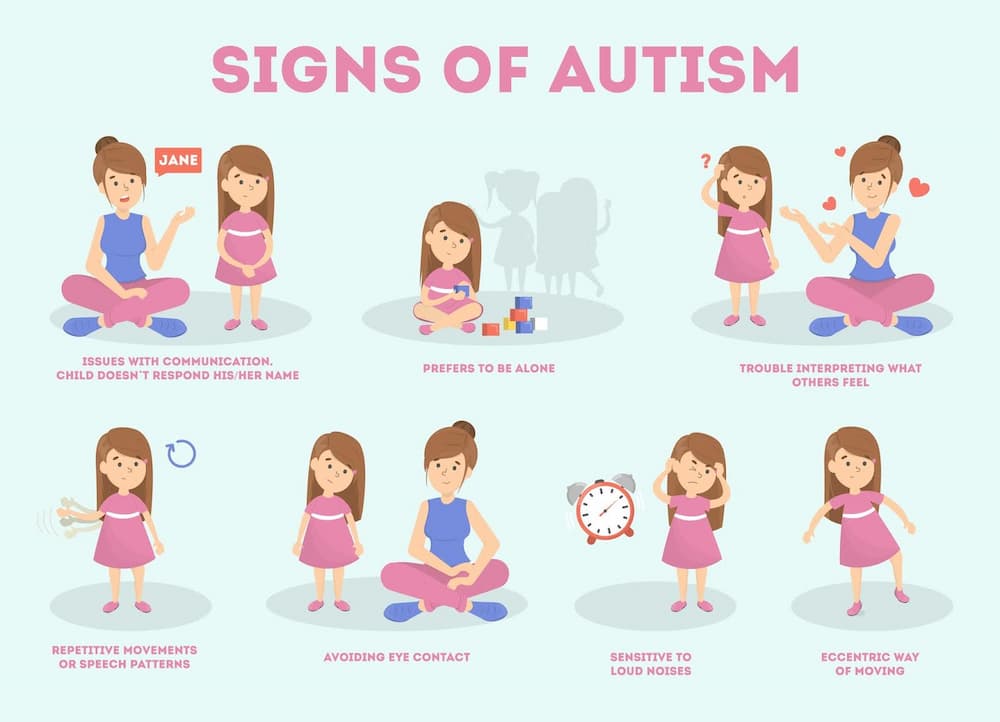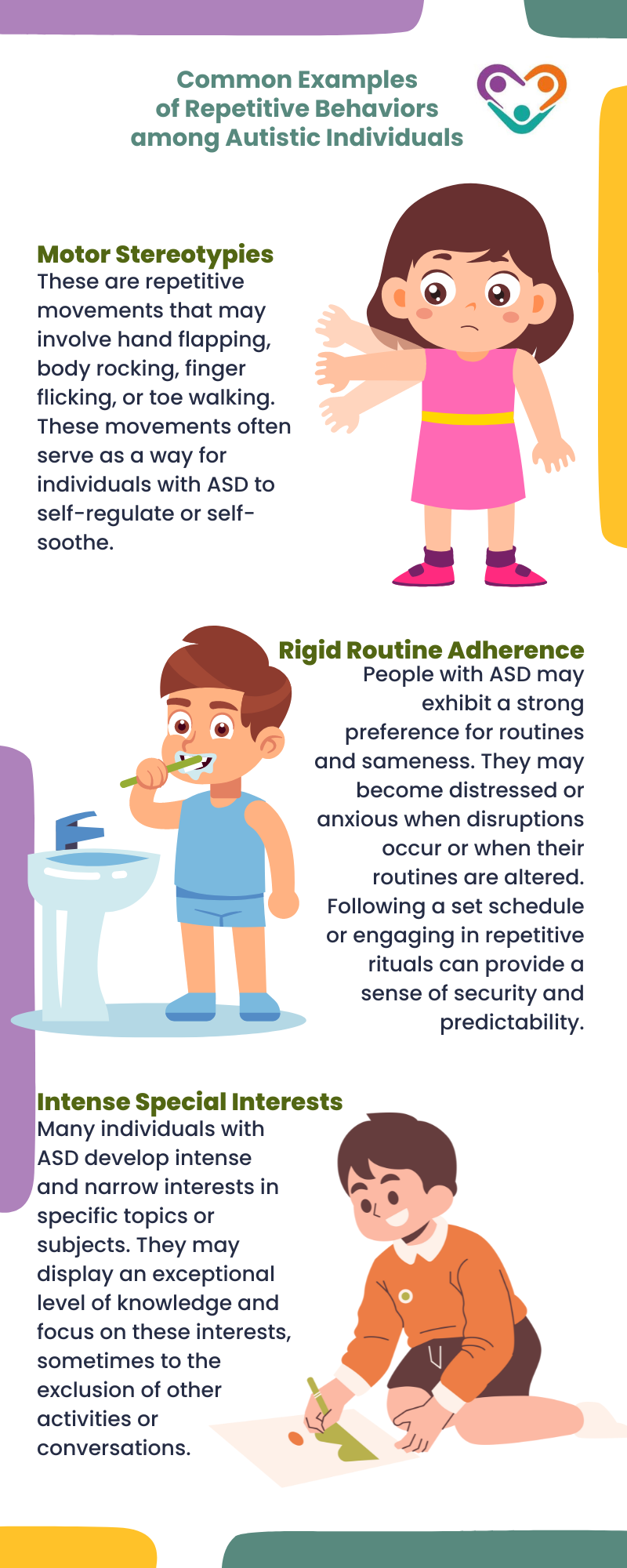Understanding the Effect of Behavioral Autism on Daily Life and Social Interactions
You could not realize just how deeply behavioral autism influences day-to-day life and social interactions. Individuals on the range commonly browse a globe filled up with communication difficulties and sensory overload. These difficulties can lead to frustration and seclusion, affecting their relationships and overall well-being.
Defining Behavior Autism and Its Characteristics
Behavior autism, frequently referred to as autism spectrum problem (ASD), incorporates a variety of conditions defined by obstacles in social communication, interaction, and repeated actions. You might discover that individuals with ASD often have a hard time to translate social hints, which can lead to misunderstandings in discussions. They might locate it difficult to establish eye contact or participate in small talk, making social scenarios feel frustrating.
Communication troubles can show up in numerous methods, from postponed speech growth to a choice for making use of less words. By recognizing these qualities, you can cultivate an environment that promotes acceptance and encourages efficient communication, assisting people with autism grow in their day-to-day interactions.
The Spectrum of Autism: Comprehending Irregularity in Actions
Autism spectrum disorder (ASD) isn't a one-size-fits-all diagnosis; it varies extensively among individuals. You might encounter people that are extremely verbal and involve quickly in conversations, while others could like solitary activities or connect non-verbally.
Furthermore, the means individuals with ASD respond to sensory input can differ significantly; some may be bewildered by brilliant lights or loud noises, whereas others flourish in stimulating atmospheres. The spectrum additionally includes distinctions in social communications; some individuals might battle to translate social cues, while others browse social setups with relative convenience. Recognizing this irregularity is essential, as it assists you appreciate everyone's unique experience and dressmaker support to their details requirements, fostering a much more comprehensive atmosphere for every person.
Communication Difficulties Faced by People With Autism
When you connect with people on the autism range, you might discover their distinct interaction challenges. They often face problems with both nonverbal and verbal cues, which can impact their social communications. Understanding these obstacles is necessary for cultivating far better connections and support.

Verbal Communication Troubles
Several people on the autism range experience spoken interaction difficulties that can substantially affect their daily interactions. Your tone, speed, or quantity could not align with social assumptions, creating others to misinterpret your intentions. Acknowledging these challenges can help you and your support network develop methods to enhance interaction and foster far better links with others in your day-to-day life.
Nonverbal Interaction Obstacles
Verbal communication isn't the only obstacle individuals on the autism spectrum face; nonverbal interaction obstacles can be equally as substantial. You may locate it challenging to interpret body language, faces, and eye contact, which are necessary for reliable interaction. These challenges can lead to misconceptions or false impressions of social signs, making interactions really feel complex or frustrating. You might battle to reveal your own emotions with nonverbal methods, leaving others unsure of your sensations or objectives. This detach can develop feelings of seclusion and aggravation. Identifying these barriers is critical for cultivating understanding and empathy in your communications. By dealing with nonverbal interaction, you can locate approaches to boost your social experiences and boost your general high quality of life.
Social Communication Impacts
Social communications can frequently really feel overwhelming because of the special communication obstacles encountered by individuals with autism. You might fight with interpreting social hints, making it difficult to comprehend sarcasm or body language. This can cause misunderstandings or awkward moments in conversations. Additionally, launching and preserving conversations might feel tough, causing anxiety in social scenarios. You might favor structured settings, making spontaneous communications unpleasant. It's additionally typical to experience problem in taking part in tiny talk, which can hinder forming brand-new relationships. Acknowledging these challenges can assist you find techniques to enhance interaction, such as exercising social abilities in safe setups or making use of aesthetic help - Aba Therapist. Recognizing your requirements enables you to navigate social communications with better confidence and simplicity.
Social Interaction and Relationship Building in Autism
While structure partnerships can be challenging for people with autism, recognizing their special perspectives and communication styles can foster purposeful connections. You might see that many people on the spectrum choose straight communication and might battle with social hints or small talk. By being uncomplicated in your interactions, you can help produce a setting where they really feel comfortable.
Engaging in shared interests can likewise offer as a bridge to much deeper links. Whether it's a leisure activity, a favorite program, or a shared enthusiasm, these typical threads can open doors to friendship.
Daily Life Regimen: Browsing Strategies and challenges
Maneuvering life regimens can be particularly testing for people with autism, particularly when unexpected changes take place. You may find comfort in having an organized timetable, as it assists you anticipate what's following. When interruptions take place, it's normal to really feel nervous or overloaded. To browse these obstacles, think about implementing visual routines or lists. These devices can offer clarity and confidence.
Establishing a regimen that includes sensory breaks can likewise be useful. This helps produce an understanding atmosphere.
Lastly, practice mindfulness techniques to handle stress and anxiousness. Simple breathing workouts or grounding methods can make a substantial distinction. By including these approaches, you can boost your daily regimen and lessen interruptions, making life really feel extra manageable.
Strengths and Capabilities of Individuals on the Autism Spectrum
Comprehending day-to-day life regimens is just one aspect of the autism experience. Many individuals on the autism spectrum possess amazing toughness and capacities that set them apart. You may find that your attention to detail is exceptional, permitting you to master jobs that need accuracy and emphasis. Your ability to believe outside the box can cause innovative remedies in numerous circumstances.
Additionally, your memory skills frequently radiate, specifically in areas of passion. Autism Behavioral Therapy. This knack for keeping details can make you a beneficial source in areas like scientific research, technology, or art. You may also exhibit strong visual reasoning, allowing you to envision complex concepts and resolve issues creatively
Additionally, your one-of-a-kind my explanation point of view on the globe can cultivate empathy and understanding in others, enhancing social interactions. Welcoming these strengths not just boosts your confidence however likewise assists others appreciate the diverse skills you bring to the table.
Developing Inclusive Settings for People With Autism
Creating inclusive environments for people with autism starts with creating sensory-friendly spaces that deal with their one-of-a-kind demands. You can likewise foster chances for social communication, assisting to develop links and friendships. By making these changes, you'll add to a much more inviting environment for everyone.
Creating Sensory-Friendly Spaces
While making sensory-friendly rooms, it's essential to review the special requirements of individuals with autism. Begin by choosing calming colors and soft illumination to produce a relaxing setting. Integrate silent areas where people can reenergize and retreat when bewildered. You'll intend to decrease loud noises and diversions, using soundproof materials or white noise equipments to help preserve serenity. Take into consideration responsive elements like soft fabrics or fidget-friendly objects that can offer comfort. Determine that areas are adaptable, enabling very easy reformation to fit various activities. Consist of visual schedules or clear signage to aid people browse the area with confidence. By attentively incorporating these aspects, you can create a welcoming ambience that sustains sensory needs and advertises total wellness.
Advertising Social Communication Opportunities
Creating sensory-friendly spaces not just addresses private convenience however also establishes the stage for purposeful social interactions amongst people with autism. To advertise these interactions, develop inclusive settings that invite involvement. Organize structured activities, like art courses or group video games, that encourage partnership without overwhelming sensory input. Use aesthetic aids and clear interaction to aid everybody involve easily. Urge peer mentoring, pairing people with autism with supportive peers that can direct them through social circumstances. Additionally, think about holding normal community events that commemorate neurodiversity, fostering acceptance and understanding amongst all individuals. By implementing these methods, you can boost social opportunities, assisting people with autism construct friendships and strengthen their social skills in a secure, inviting environment.

Often Asked Questions
Just How Can Friends Assistance A Person With Behavioral Autism?
You can sustain a pal with behavior autism by being patient, paying attention proactively, and respecting their limits. Participate in tasks they delight in, interact honestly, and develop a comfortable environment where they really feel valued and comprehended.
What Resources Are Offered for Parents of Children With Autism?
You can check out different resources for moms and dads of youngsters with autism, consisting of support groups, educational sites, and local community solutions. Getting in touch with various other moms and dads can additionally supply beneficial insights and shared experiences to aid browse difficulties.
Can Behavioral Autism Adjustment Gradually?

Yes, behavioral autism can change in time. You Read Full Report may see changes in interaction, social abilities, and habits as your youngster grows. Early treatment and support frequently play essential duties in these developmental changes.
Exactly How Do Sensory Level Of Sensitivities Impact Day-to-day Live?
Sensory sensitivities can make daily experiences frustrating. You could deal with intense lights or loud noises, resulting in stress or evasion. Locating atmospheres that accommodate your needs click for source can significantly enhance your comfort and total every day life.
What Prevail Misconceptions Concerning Behavioral Autism?
You may think behavior autism just impacts interaction abilities, yet it's more complex. Numerous presume individuals do not have empathy or intelligence, which isn't true. Recognizing these false impressions helps foster approval and assistance for those on the range.
Behavioral autism, usually referred to as autism spectrum problem (ASD), incorporates a variety of conditions defined by challenges in social interaction, communication, and recurring actions.Social communications can frequently really feel overwhelming due to the distinct interaction difficulties encountered by individuals with autism.Creating sensory-friendly areas not just addresses individual comfort yet likewise establishes the stage for meaningful social communications amongst individuals with autism. Encourage peer mentoring, pairing individuals with autism with supportive peers who can direct them with social circumstances. By applying these methods, you can improve social chances, helping individuals with autism build relationships and strengthen their social abilities in a secure, inviting setting.